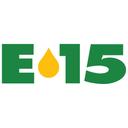Sen. Pete Ricketts, R-Neb., pressed U.S. EPA Administrator Michael Regan on the agency's proposed biomass-based diesel RFS RVOs and its delayed action on a Midwest E15 petition during a March 22 Senate committee hearing.
Modeling ethanol's carbon emissions derived from corn, often referred to as “Field to Wheels,� does not capture the benefits of emissions reductions created by changes to the finished gasoline fuel blend (chemistry) or improved vehicle efficiency.
Sens. Chuck Grassley, R-Iowa; Amy Klobuchar, D-Minn.; Joni Ernst, R-Iowa; and Tammy Duckworth, D-Ill., on March 22 reintroduced the Next Generation Fuel Act, a bill that aims to establish a high-octane, low-carbon fuel standard.
President Joe Biden has proclaimed March 21 as National Agriculture Day. Agriculture Secretary Tom Vilsack and EPA Administrator Michael Regan issued comments recognizing the ag community for its work to provide the U.S. with food, fuel and fiber.
Iowa Gov. Kim Reynolds, Nebraska Gov. Jim Pillen, Minnesota Gov. Tim Walz, and South Dakota Gov. Kristi Noem on March 21 sent U.S. EPA Administrator Michael Regan a letter urging the agency to allow E15 sales during the 2023 summer driving season.
The ethanol industry urged the U.S. EPA to to reinstate the ability to sell E15 year-round ahead of the 2023 summer driving season during a March 21 hearing held to gather comments on a rulemaking to allow year-round E15 in eight Midwest states.
Minnesota ethanol industry contributes $2.7B to state's economy
Minnesota's ethanol industry contributed $2.7 billion to the state's gross domestic product (GDP) in 2022, according to a new study by the University of Minnesota Extension that was sponsored by the Minnesota Bio-Fuels Association.
Legislation recently introduced in the Nebraska Legislature aims to boost the availability of E15 fuel by introducing new requirements for fuel retailers and creating a grant program to support necessary upgrades at fuel retail locations.
Reserachers at the U.S. Department of Energy's National Renewable Energy Laboratory are evaluating the regional variables associated with deploying sustainable aviation fuel (SAF), including a case study of Chicago O'Hare International Airport.
The USDA recently concluded the latest round of its Higher Blends Infrastructure Incentive Program, and once again the RFA helped dozens of retailers apply for, and win, grant awards that will expand the availability of higher ethanol blends.
Sales of E85 flex fuel in California in 2022 surged 66 percent over 2021 and more than doubled the pre-pandemic record set in 2019, according to new data released by the California Air Resources Board.
In comments submitted to CARB on March 15 following the latest LCFS workshop, Growth Energy highlighted the growing environmental benefits of bioethanol, in particular the steady decline in bioethanol's average carbon intensity (CI).
U.S. Grains Council staff and representatives from the Illinois Corn Marketing Board joined Sen. Tammy Duckworth, D-Ill., in Tokyo in late February to discuss Japan's committment to double ethanol consumption by 2030.
Members of the U.S. Senate and U.S. House of Representatives on March 14 reintroduced the Consumer and Fuel Retailer Choice Act, which aims to implement a permanent, nationwide solution to allow year-round E15 sales.
Ethanol Producer Magazine's editor reflects on the trajectory of ethanol-based SAF while offering a preview of the publication's April issue, which includes stories on alcohol-to-jet, industry M&A activity, and near-site ethanol plant CCS.
Legislation currently pending in Minnesota aims to establish a clean transportation standard that would require the state's transportation fuels to achieve 100 percent reduction in carbon intensity (CI) by 2050.
Several alcohol-to-jet projects, partnerships and technologies have been announced in the past 18 months. Ethanol Producer Magazine checks in on each, looking at where they stand and what they might ultimately achieve. Sustainable aviation fuel production remains nascent, but it is already clear that the feedstocks predominantly being used to make SAF today will not satisfy total future demand. Billions of gallons of SAF are needed, but only so much used cooking oil, waste fat, corn oil and soybean oil is available and unclaimed. A host of other feedstocks are plausible, but hard to convert, hard to find or hard to defend. These marketplace realities are drawing the SAF industry to an input that is ubiquitous, clean, understood and transformation ready: low-carbon ethanol.
Americans strongly support expanded use of lower-cost, lower-carbon renewable fuels like ethanol, want greater access to higher ethanol blends, and strongly oppose policies that remove options at the gas pump or the auto dealership.
At the U.S. Grains Council's 20th International Marketing Conference and 63rd Annual Membership Meeting in Savannah, Georgia, the Council's Ethanol Advisory Team (A-team) solidified key market priorities for 2023.
The U.S. exported 117.82 million gallons of ethanol and 770,344 metric tons of distillers grains in January, according to data released by the USDA FAS on March 8. Exports of both products were down when compared to January 2022.
With carbon capture and sequestration taking ethanol towards net-zero, a rising CCS developer is focused on working with producers that are uniquely positioned to sequester near their plant.
UNICA, the Brazilian sugarcane industry association, has announced facilities in the south-central region of Brazil produced 207.26 million liters of ethanol during the first half of February. Corn ethanol accounded for 98 percent of that volume.
The attorneys general of Iowa and Nebraska on March 6 notified U.S. EPA Administrator Michael Regan of their intent to sue the agency over its illegal delay in issuing regulations to allow year-round sales of E15 within their states.
The U.S. Energy Information Administration increased its forecasts for both 2023 and 2024 fuel ethanol production in its latest Short-Term Energy Outlook, released March 7. The forecast for ethanol blending was also increased.
The Washington State Senate on March 1 voted 46 to 2 in favor of a bill that aims to encourage the manufacture and purchase of SAF though tax incentives. The bill also directs WSU to convene a workgroup to further development of alternative jet fuel.
The U.S. EPA will hold a virtual public hearing on March 21 to gather comments on its proposed rule that aims to allow year-round sales of E15 in Illinois, Iowa, Minnesota, Missouri, Nebraska, Ohio, South Dakota and Wisconsin starting in 2024.
On March 2, Iowa Gov. Kim Reynolds received the RFA's All-Industry Award and addressed the National Ethanol Conference, where she announced plans to request an emergency waiver allowing E15 sales this summer.
Twenty-three Iowa locations in 16 different counties were awarded more than $1.1 million in cost-share grants from the Iowa Renewable Fuels Infrastructure Program during the latest quarterly application cycle.
Growth Energy on March 3 hailed a final rule by the Arizona Department of Agriculture Weights and Measures Services Division to allow the sale of E15 in the greater Phoenix area under the state's Clean Burning Gasoline program.
The U.S. EPA on March 1 released a proposed rule that aims to allow year-round sales of E15 in Illinois, Iowa, Minnesota, Missouri, Nebraska, Ohio, South Dakota and Wisconsin beginning on April 28, 2024.
Advertisement






























